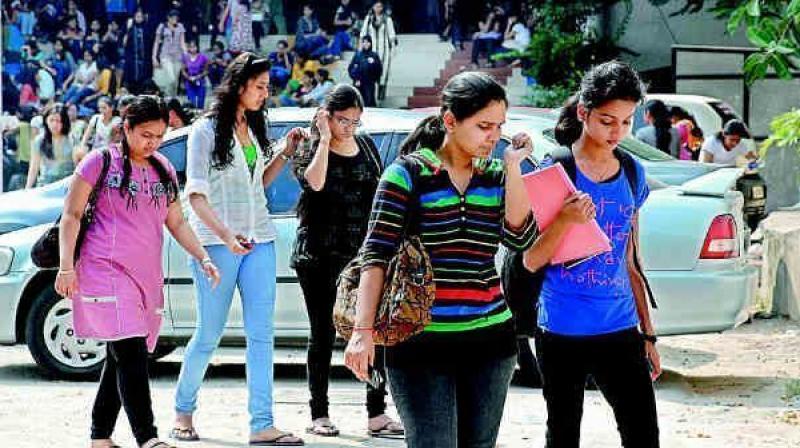MHRD to give 20 per cent more seats to women in NITs
MHRD decided to reserve 20% seats for women after observing a 9 per cent fall in admission in the current academic year.

Hyderabad: To encourage more women to take up courses in the National Institute of Technology (NIT), the ministry of human resource development (MHRD) is planning to provide 20 per cent extra seats for women from the next academic year, along the lines of the IITs.
MHRD decided this after observing a 9 per cent fall in admission of women in the current academic year. Women’s admission was 22 per cent in 2016. Percentage of undergraduate female students admitted this year at NIT Warangal through Joint Seat Allocation Authority (JoSAA) 2017 is only 19 per cent.
Across the country, there are 31 NITs with an intake of over 17,000 students. 3,900 female students were admitted in 2017 but this year the number has come down to 2,500.
Indian Institute of Technology also introduced 20 per cent supernumerary seats for women from the current academic session. According to the MHRD, the decision to not consider Class XII marks in preparing the final JEE ranks could have impacted the girls’ ranks and the overall admissions.
Y. N. Reddy, registrar at NIT Warangal, said, “We are trying our level best to encourage women in our institute as the government is also thinking of reserving more seats for girls in NITs. As admissions are not in our hands, we can only take steps once female students join our institute. We will motivate the girl students to participate in every event, we will conduct several programmes for women empowerment and we will take complete care of the students.”
K. Vekata Gaddam Reddy, a senior professor at an engineering college, said, “I personally feel it is a great idea to allocate supernumerary seats for female students. This will certainly improve gender balance in engineering programmes at premier institutes like IITs and NITs. Girls should be encouraged to pursue engineering programmes from high school onwards. Additional coaching on foundation courses would enhance success rate in joint entrance examination. Top 20 percentile criterion should also be relaxed so that more female candidates can qualify for JEE (Advanced).”

